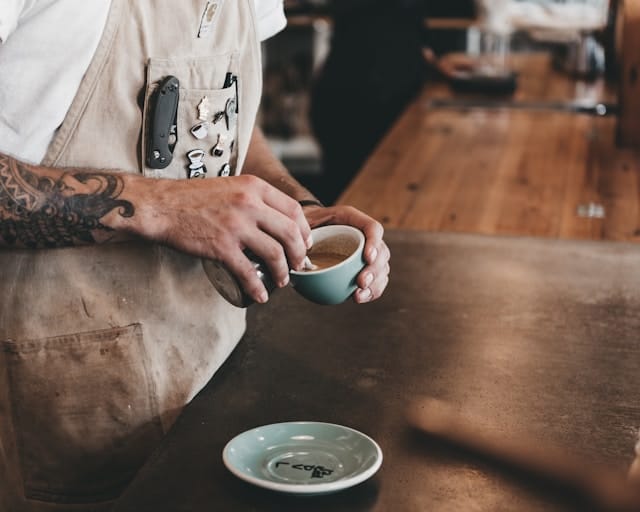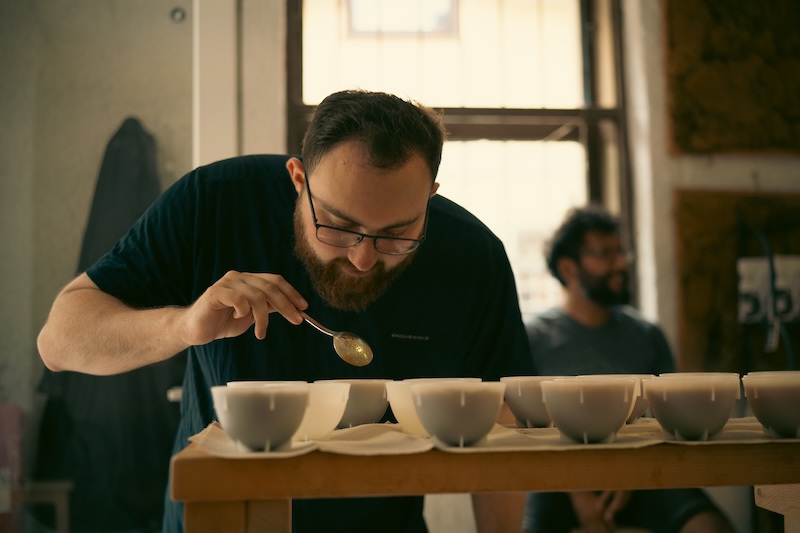ALL POSTS
ALL POSTS
Sustainability in Coffee and Why It Matters
4 min read
Last edit: Jan 9, 2025

Sustainability in coffee encompasses the entire supply chain from farm to cup, aiming to create a system that supports the environment, local communities, and the economy. This holistic approach addresses various aspects such as fair trade, organic farming, and reducing the carbon footprint of coffee production. Understanding sustainability in coffee means acknowledging the efforts that go into making your morning cup both delicious and ethically responsible.
The Environmental Impact
The coffee industry has a significant environmental footprint. Traditional coffee farming practices can lead to deforestation, water contamination, and biodiversity loss. Sustainable coffee production, however, focuses on minimizing these impacts. Shade-grown coffee, for instance, preserves forest habitats and supports biodiversity. Organic farming reduces the use of harmful pesticides and fertilizers, protecting soil and water resources.
Shade-grown coffee plantations are designed to mimic natural forest environments, providing habitat for wildlife and promoting biodiversity. This method also enhances soil health and water retention, contributing to more resilient ecosystems. Moreover, organic farming practices eliminate the use of synthetic chemicals, fostering healthier soil and reducing water pollution.
Social Sustainability
Social sustainability in coffee production involves ensuring fair wages and good working conditions for coffee farmers and workers. The Fair Trade movement has been instrumental in promoting these standards. Fair Trade certification guarantees that farmers receive a minimum price for their coffee, helping them to cover production costs and invest in their communities. This system also emphasizes ethical labor practices, preventing child labor and ensuring safe working conditions.
In addition to fair wages, social sustainability initiatives often include education and healthcare programs for farming communities. These efforts help improve the quality of life for coffee producers and their families, fostering long-term development and stability in coffee-growing regions.
Economic Sustainability
Economic sustainability ensures that coffee farming is viable in the long term. This involves providing farmers with the tools and knowledge they need to improve their yields and quality. Programs that offer training in sustainable farming techniques, financial management, and market access can help farmers increase their income and reduce their vulnerability to market fluctuations.
Specialty coffee, which commands higher prices due to its quality, also plays a role in economic sustainability. By focusing on producing high-quality beans, farmers can tap into premium markets that offer better returns. This shift not only improves their livelihoods but also encourages the adoption of sustainable practices that enhance the quality of the coffee.
Reducing the Carbon Footprint
The carbon footprint of coffee includes emissions from farming, processing, transportation, and brewing. Sustainable coffee practices aim to reduce these emissions at each stage. For example, some coffee producers are investing in renewable energy sources for their operations. Others are implementing waste reduction strategies, such as composting coffee husks and recycling water used in processing.
In the consumer phase, choosing locally roasted coffee can reduce transportation emissions. Additionally, opting for reusable coffee filters and cups can minimize waste. As consumers become more aware of the environmental impact of their coffee choices, they can drive demand for more sustainable options.
Certification and Consumer Choice
Certifications like Fair Trade, Rainforest Alliance, and USDA Organic help consumers identify sustainable coffee options. These certifications ensure that the coffee meets specific environmental and social standards. By choosing certified coffee, consumers can support sustainable practices and encourage more producers to adopt them.
However, certification is just one piece of the puzzle. Transparency and traceability in the coffee supply chain are also crucial. Some companies provide detailed information about the origin of their coffee and the conditions under which it was produced. This level of transparency helps build trust and allows consumers to make informed choices.
Reports on Sustainability’s Impact
Sustainable practices have led to significant improvements in the coffee industry. The 2023 Coffee Barometer highlights that while there is still much work to be done, particularly regarding economic equity, sustainability efforts have shown promise. Initiatives such as the EU Deforestation Regulation and the promotion of living wages and incomes are driving positive change. These measures are essential for addressing the income disparities faced by small-scale farmers and ensuring fair compensation for sustainable practices (Daily Coffee News by Roast Magazine).
The Sustainable Coffee Challenge outlines ambitious goals for 2050, with interim targets set for 2025, focusing on improving livelihoods, conserving nature, and strengthening market demand. This collaborative effort among industry stakeholders is crucial for achieving long-term sustainability (https://www.sustaincoffee.org/).
Reports from organizations like the International Institute for Sustainable Development emphasize the impact of voluntary sustainability standards (VSSs). These standards help improve farmers’ livelihoods by increasing farm gate prices and supporting climate resilience efforts (IISD). Additionally, Nespresso’s AAA Sustainable Quality™ Program, in partnership with PUR Projet, has invested in agroforestry initiatives to enhance the resilience of coffee farms against climate change, planting millions of trees and supporting sustainable farming practices (British Coffee Association).
Overall, these sustainable practices are fostering more resilient coffee production systems, supporting environmental conservation, and improving economic outcomes for farmers.
Conclusion
Sustainability in coffee is a multifaceted effort that requires the participation of everyone in the supply chain, from farmers to consumers. By supporting sustainable coffee practices, we can enjoy our favorite beverage while contributing to a healthier planet and fairer societies. Whether it’s through choosing certified coffee, reducing waste, or supporting companies with transparent supply chains, every step towards sustainability makes a difference. So next time you sip your coffee, take a moment to appreciate the journey it took to get to your cup and the positive impact your choice can have on the world.
Would you like to learn more about other coffee roasters in Slovenia? Here are the guides.








